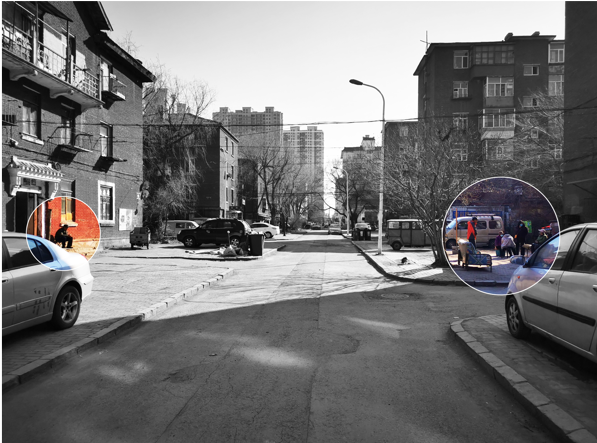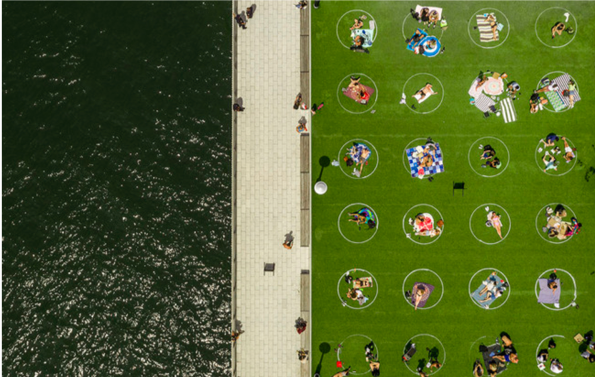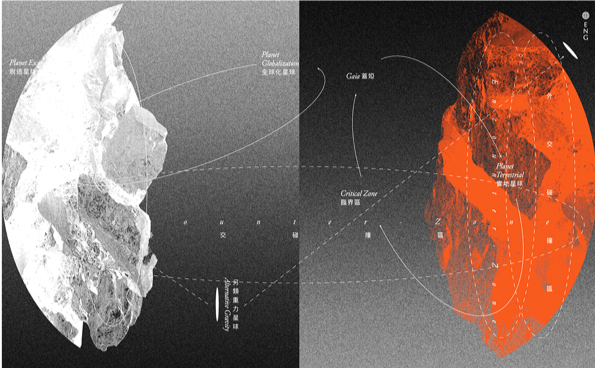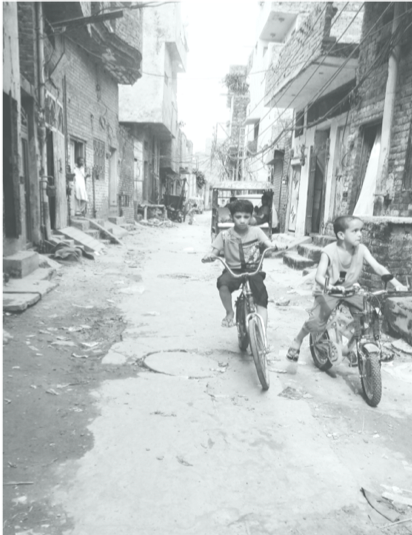Research Elective
2021-2022 campus Ghent
FALL SEMESTER
1. Research Project by Drs. Jan Van Hoof
Mapping the living conditions of Sluizeken-Tolhuis-Ham.
This elective starts from the distinction between the city as a physical infrastructure and the city as urban life, which takes shape by its routines, processes and mechanisms. The city as a spatial infrastructure forms the “stage” for this urban life and relates the various elements that define urban life. Both the city as spatial infrastructure and the city as urban life are a cause and effect of each other and therefore both important and inseparable.
This elective is part of a study, commissioned by the city-service Urban Renewal, part of the city of Ghent. This research is performed by the “Stadsacademie”, a multidisciplinary collaboration between the Department of Architecture of the KU Leuven and the University of Ghent. The aim of the research is to develop a learning trajectory that approaches the city from its urban life and to implement this approach in the process of urban renewal. To develop, test and monitor this learning trajectory, the research focuses on 2 neighborhoods that will start a project of urban renewal in the coming years: Sluizeken-Tolhuis-Ham and the Bloemekenswijk in Ghent.
2. Research Project by Drs. Yiping Zhang:
History, Space, Heritage: A Critical Socio-spatial Analysis on Workers’Villages In Post-industrial Northeast China
This research project seeks to investigate in-depth one Workers’ Village, which was built by the local government (and local state-owned industries) under the assistance from the Soviet government and experts during the 1950s-60s period, situated in Harbin, Northeast China. The aim of this project is (1) to develop a historical understanding of urban and architectural Soviet-style steered city planning of such workers’ villages, especially related to the collective spaces of the village, in view of the previous collective life and collectivism propagandized by the communism state and (2) to understand the present use from a socio-spatial perspective, and how societal activities and private lives performed/performs in such collective spaces. The project is mainly aiming at understanding the collective spaces of that environment. The project will investigate how this knowledge can be projected towards innovative regeneration strategies towards future socio-cultural sustainable neighborhood development. Case study, literature review, and field work will be the main methods in this research.
SPRING SEMESTER
1. Research Project by Drs. Gitte Schreurs
Shocks & the City
In the midst of a global pandemic, we cannot help but wonder if the post-Covid world will differ significantly from the world we used to know. But the truth is that cities globally are under perpetual threat of the impact of shocks and stresses, generating a constant transformation of the urban spatial, social, and economic fabric. Change manifests itself in many different forms, either as planned projects, or as unsolicited events. But how can we, as architects and designers, deal with this notion of unpredictability in our cities? How can we engage in the discussion of resilient design, when we don’t know what lies ahead of us?
The goal of this elective is to explore neighborhoods on the waterfront of New York City for traces of impact by shocks or stresses on every possible scale (from the largest global scale, to the smallest human scale). The students will use different sources (Google Maps and Streetview, available images, internet databases), to create an atlas that showcases scenarios of multi-scalar translations of change on the neighborhood.
Reflections are made on possible relations between the impact of change and the characteristics of the neighborhood, such as building typologies, ethnicity, gender, age, …
Group discussions are held about resilient design strategies, based on the gathered information and insights.
2. Research Project by Drs. Johan Nielsen
Remote Practice #5: Ghent – Mexico City
Today the question of being remote is of particular interest. Because of natural limitations imposed by our planet, total mobility of persons promised by deregulated globalisation reveals to be a lethal illusion. Furthermore, recent societal events such as pandemics or restrictive borders politics have shown that physical and virtual limits have taken new meanings and some turn to be impassable. In many domains of human activity (warfare, medicine), condition of remoteness is taken seriously. It is certainly time to rethink remoteness in architectural design and turn it into an opportunity to contribute to a sustainable life on earth. This year the research studio Remote Practice is held in collaboration with the Mexican School of Architecture – University of La Salle.
3. Research Project by Drs. Masshood Arif
Public Spaces in Informal settlements
Students will be given different literatures weekly for the critical review and they will use different approaches to get an understanding of the depth and width of these articles. This will enable students to reflect critically on these projects and their implications for architecture, urbanism and the spatial configuration of cities and regions. Additionally, student will be given case study area from Pakistan. The preliminary details about each case study will be given and students will be asked to explore different aspects of case studies by mapping or different design interventions. The students will investigate how people and buildings or open space relate to each other, how space is appropriated, and local identities are formed, how it contributes to the built and social environment of urban life.
4. Research Project by Prof. Dr. Maarten Gheysen
Where We Live Together.
The village square as parking lot (top). Image by the author.
Tracking the use of the village squares on an hourly base.
Drawings by Martin Vizár, 2018, based on Gehl.
Over the past decade a solid knowledge has been constructed on public and collective spaces in the villages. In Flanders however, more than half of the population lives in a non-urban context, a context we started to call All City/All Land. At the same time, public and collective spaces in this context are often misinterpreted and wrongly designed, leading to a discrepancy between design and use of spaces.
Considering public and collective spaces as a spatial expression of the way Where We Live Together, this research elective is focusing on both the analysis of 3 cases and a literature study to grasp potential interpretation of this Togetherness. What do people seek in this spaces? What do they do there? Where do they go?
In parallel with this research elective a group students of Vives University College will conduct in depth interviews of the users of the 3 cases. Exchange between the 2 groups of students is foreseen on a regular base.
This research elective is part of 2 years research project in collaboration with Vives University College and the City of Kortrijk.












Comments are closed.